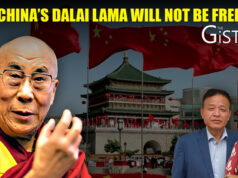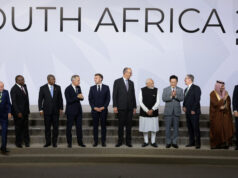At a StratNews Global roundtable, three leading experts on China—Jayadeva Ranade, President of the Centre for China Analysis and Strategy; Dr. Sriparna Pathak, Professor of China Studies and founding Director of the Centre for Northeast Asian Studies at O.P. Jindal Global University; and Dr. Aravind Yelery, Associate Professor at JNU—examined the implications of Chinese Foreign Minister Wang Yi’s recent visit to India and what it means for the future of bilateral ties.
The visit, officially centered on border talks, also carried a strong economic undertone. With access to Western markets narrowing, China is seeking new outlets, and India—Asia’s fastest-growing major economy—represents an attractive alternative. At the same time, India remains dependent on Chinese raw materials and supply chains, despite efforts to diversify. Both sides appear to be testing the possibility of a pragmatic reset, easing some restrictions on travel, investment, and cooperation.
Yet the thaw is approached with caution. India’s experience suggests that periods of warmth have often been followed by renewed friction—whether through border tensions or diplomatic maneuvering in multilateral forums. This recurring pattern raises doubts about the durability of any rapprochement. The logic of economic engagement is clear, but trust remains fragile.
The broader geopolitical backdrop also shapes the dynamic. U.S. tariffs and shifting supply chains have created both risks and openings for emerging economies like India. While Washington reassesses its relationship with New Delhi, Russia continues to be a time-tested partner. In this environment, India has sought to maintain strategic autonomy, avoiding alignment that could limit its room for manoeuvre Engaging China may offer short-term economic gains, but overdependence carries strategic risks.
Ultimately, the panel underscored that the visit reflects tactical accommodation rather than a fundamental shift. Dialogue is preferable to confrontation, but unresolved border disputes, regional rivalries, and deep-seated mistrust ensure that ties remain precarious. The current warmth, then, is less a turning point than a pause in a rivalry that continues to shape Asia’s strategic balance.
In a career spanning three decades and counting, Ramananda (Ram to his friends) has been the foreign editor of The Telegraph, Outlook Magazine and the New Indian Express. He helped set up rediff.com’s editorial operations in San Jose and New York, helmed sify.com, and was the founder editor of India.com.
His work has featured in national and international publications like the Al Jazeera Centre for Studies, Global Times and Ashahi Shimbun. But his one constant over all these years, he says, has been the attempt to understand rising India’s place in the world.
He can rustle up a mean salad, his oil-less pepper chicken is to die for, and all it takes is some beer and rhythm and blues to rock his soul.
Talk to him about foreign and strategic affairs, media, South Asia, China, and of course India.




